MARCH

Sara Davis, The Scapegoat, FSG (March 2)
In Sara Davis’s debut novel, N investigates the circumstances of his father’s death, which leads him to a mysterious hotel built over a former Spanish mission. As he untangles the mystery, he begins hallucinating about his past—and worrying if he’s playing into the hands of a larger conspiracy. Sounds spooky and compelling; and if it’s half as good as Davis’s LARB essay on the TV show Laguna Beach, count me in. –WC
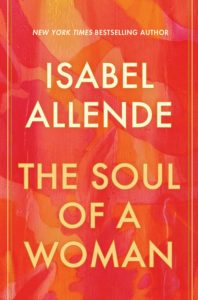
Isabel Allende, The Soul of a Woman, Ballantine (March 2)
In The Soul of a Woman, Isabel Allende has told a deeply personal story of family trauma, her relationship with her mother, and her own experiences with marriage. She has also managed to make this a bit of feminist theory, a study in the sacrifices women are forced to make and the evolving definitions of feminism. The bestselling author of A Long Petal of the Sea, Isabel Allende is a master at manipulating the microscopic lens and expanding our field of vision. –KY
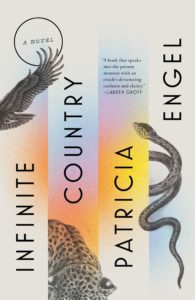
Patricia Engel, Infinite Country, Avid Reader Press / Simon & Schuster (March 2)
Mauro and Elena are a young Bogotá couple who move to the US with their firstborn at the turn of the Millennium, in search of better wages and a reprieve from the civil unrest back home. As their family grows, Mauro and Elena struggle to deal with the cruelty and xenophobia of post-9/11 American society, before Mauro’s deportation tears apart their already-fragile existence. Colombian-American author Engel—who won the Dayton Literary Peace Prize for her extraordinary 2016 novel, The Veins of the Ocean—has produced another gorgeous and devastating Pan-American story of exile, yearning, and loss. –DS
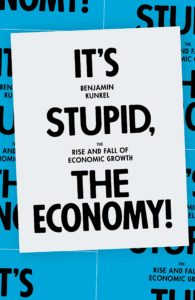
Benjamin Kunkel, It’s Stupid, the Economy! : The Rise and Fall of Economic Growth, Verso (March 2)
For anyone paying attention over, say, the last 30 years, the fact that the forever-growth at the heart of late capitalism is really bad for the planet (and the people who live on it! hi), is not news. And yet we still live at the behest of an entrenched political class that thinks we can grow our way clear of trouble. Enter novelist and critic Benjamin Kunkel who makes the case against growth, suggesting instead that we prioritize human beings and the environment over the endless quest for profits that never quite seem to trickle down. This is your ecosocialist, degrowth reader for 2021. –JD
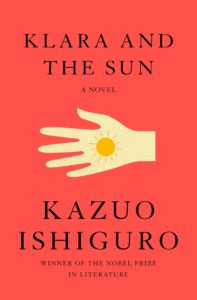
Kazuo Ishiguro, Klara and the Sun, Knopf (March 2)
If your favorite Ishiguro novel is Never Let Me Go, you must pick up the Nobel laureate’s latest, in which Klara, a solar powered Artificial Friend (AF) in a near-future world, tries to help a sick child by appealing to the sun to save her. (If your favorite Ishiguro novel is something else, well, you should probably pick it up anyway.) It’s clear that Ishiguro continues to be interested in the elusive nature of humanity, which persists in its unknowability despite all the ways we try to control, explain, or fabricate it. And if you think about it, that’s pretty much the reason any of us read fiction at all. –ET
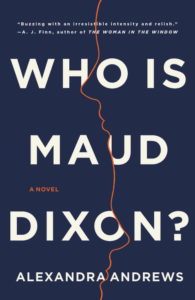
Alexandra Andrews, Who is Maude Dixon?, Little, Brown (March 2)
In Alexandra Andrews’s biting debut, full of the kinds of names that should appear in fiction, young publishing assistant Florence blows up her career after her boss sleeps with her, and finds a tentative lifeline with a new job as the assistant to the mysterious Helen, who took the literary world by storm under the pseudonym Maude Dixon, but who is now struggling to complete her next novel. The two head to Morocco for a research trip, but after a deadly car crash, only one wakes up in the hospital. Is she Maude Dixon, or is she about to become Maude Dixon? –MO
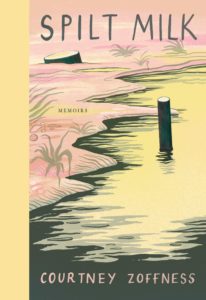
Courtney Zoffness, Spilt Milk: Memoirs, McSweeney’s (March 2)
Look, there are blurbs, and there are blurbs. This book, Zoffness’s literary debut (though she has been on the scene for some time), has blurbs from Mary Gaitskill, T Kira Madden, Tiphanie Yanique, and Ben Marcus, among others, including Mat Johnson, who wrote “There is so much I want to say about Spilt Milk, but honestly they’re all variations of This is fucking brilliant. Whatever you think this book is, it’s more.” Okay then! –ET
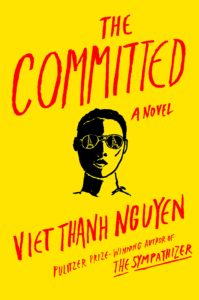
Viet Thanh Nguyen, The Committed, Grove Press (March 2)
The much-anticipated sequel to 2016’s Pulitzer Prize-winning The Sympathizer, The Committed picks up the story of Nguyen’s anonymous north-Vietnamese protagonist, reeling from a brutal re-education at the hands of his ex-best friend, as he arrives in Paris as a refugee in the early 1980s and embarks on a new life as a drug dealer and hanger-on to a set of left-wing intellectuals. A master stylist with blistering intellect, Nguyen is capable of exploring big ideas at a page-turning pace. –EF
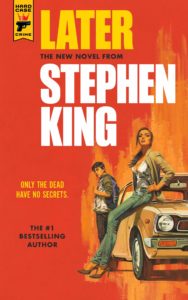
Stephen King, Later, Hard Case Crime (March 2)
As a kid growing up in the 70s, I wore out the ink on my Stephen King paperbacks (Carrie, Salem’s Lot, Night Shift), reading terrifying page after terrifying page with a flashlight under my bunkbed tent. King’s new novel, Later, has the tenor of such a book but grittier and crime-focused, as the pulpy cover suggests. Jamie Conklin, a teenage boy with a single mom, has “abilities” that could help others. But there’s a Faustian bargain in the mix. Does he help the NYPD or is there too much at stake? There’s also a novel within the novel that’s sure to add complexity to this connect-the-dots tale, but it’s also compassionate and tender, as any true Stephen King book tends to be; exploitation of that tenderness always contains the real horror or crime. He’s been cagey about the book’s details (there’s been mumblings about things coming from beyond the grave), which adds to the mystique, so naturally, you will find me in March, flashlight in hand. –KA
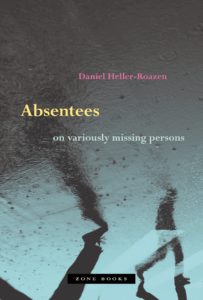
Daniel Heller-Roazen, Absentees: On Variously Missing Persons, Zone Books (March 9)
At the starting place of Princeton professor Daniel Heller-Roazen’s book Absentees is a question: How does a person cease being a person in our society? His inquiry, ambitious and interdisciplinary, raises a number of issues in the fields of philosophy, law, and history; he delves into various categories of nonpersons, from the dead to those who are excluded, disenfranchised, and otherwise disappeared from the world. –CS
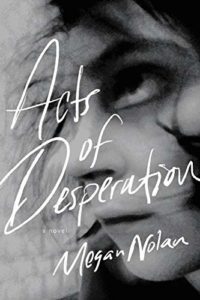
Megan Nolan, Acts of Desperation, Little, Brown (March 9)
Oh boy, do I love the sound of this debut, the story of an obsessive love affair described as “combining the intellectual excitement of Rachel Cusk with the emotional rawness of Elena Ferrante.” And if that wasn’t enough, well let’s say that Nolan’s recent essay about the joys of frivolous sex didn’t make me want to read her novel any less. –ET

Diane Wilson, The Seed Keeper, Milkweed (March 9)
Milkweed always seems to punch well above its indie press weight (two of my favorite books of the last few years have been Robin Wall Kimmerer’s Braiding Sweetgrass and Richard Wagamese’s Indian Horse) so I’m excited to get my hands on The Seed Keeper by Diane Wilson. The novel tells the story of Rosalie Iron Wing, a Dakota woman who, after surviving the foster care system to make a life of her own in the world, must confront the harsh realities—climate change, capitalism—of contemporary farming life. In looking to her past for answers Rosalie finds unexpected communion with her ancestors, the women—strong, resilient, proud—who made her who she is. –JD
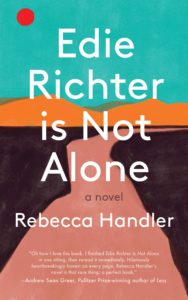
Rebecca Handler, Edie Richter is Not Alone, Unnamed Press (March 9)
Andrew Sean Greer described this debut, in which an acerbic Californian with a secret moves to Perth, Australia (but of course, cannot escape her past no matter how far she goes), as “that rare thing: a perfect book.” Perfect or not, with writing that has been compared to Mary Robison and Lorrie Moore, and a story about a woman confronting her own humanity, I’m excited to give it a shot. –ET
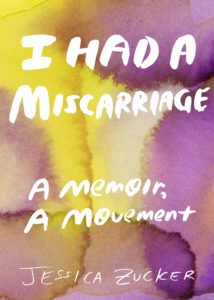
Jessica Zucker, I Had a Miscarriage: A Memoir, a Movement, Feminist Press (March 9)
Let’s talk about miscarriages. It’s estimated that one in every eight pregnancies results in a miscarriage. (This number is actually higher, as many women experience miscarriages before they even realize they’re pregnant.) And yet! Miscarriages are often considered an uncomfortable and taboo topic. Jessica Zucker’s memoir is a response to that, a bold first step in kicking down the stigma that surrounds this common event. There are a few things that make Jessica Zucker perfectly positioned to write this book: First off, she is a psychologist that specializes in reproductive health. Also, her second pregnancy was that one in eight. In I Had a Miscarriage, Jessica Zucker shares her expertise and her story, a melding of the theoretical and the personal that makes for a powerful feminist framework around this topic. –KY
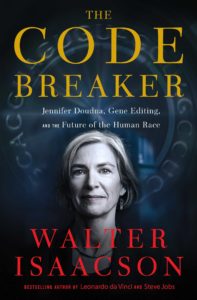
Walter Isaacson, The Code Breaker: Jennifer Doudna, Gene Editing, and the Future of the Human Race, Simon & Schuster (March 9)
The latest biography by the author of everyone’s favorite book of Job(s) introduces us to Nobel Prize-winner Jennifer Doudna, who, with her colleagues, invented CRISPR, something we would all do well to understand as we embark on the next decade. At the very least, it’s likely to be fascinating. –ET
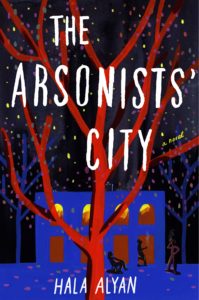
Hala Alyan, The Arsonists’ City, HMH (March 9)
Alyan, author of the award-winning Salt Houses, has written another family saga studded with the same beautiful lyricism. The Nasr family—a Syrian mother, a Lebanese father, and three American children—live a life of migration. But when Idris’s father dies and he decides to sell their ancestral home in Beirut, everyone unites against him in a fight to save the house revealing deep-seated secrets (shame, jealousies, and lost love; you know, the usual family drama). Luckily that also makes for great fiction. –EF
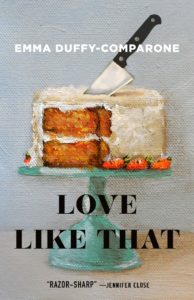
Emma Duffy-Comparone, Love Like That, Henry Holt (March 9)
The stories in this debut collection made me feel a little bit sick to my stomach—in that “I know her” way, or sometimes in that “I can’t believe this is happening” way, but always in that “I have to keep reading this” way. She particularly excels in first sentences, like “You know he has a kid, but right now it’s whatever.” Or “Her parents always said they’d dig their own graves if anything happened to their children, so when her sister Claire disappeared on a camping trip in the White Mountains, Elsie kept an eye on things.” Or “My fourth-grade teacher, Mrs. Finger, after escorting Paulie DiBona to the principal’s office for yelling that she had ass smell, dropped like forty sandbags into her rocking chair and announced that we were getting a paraprofessional.” See what I mean? –ET
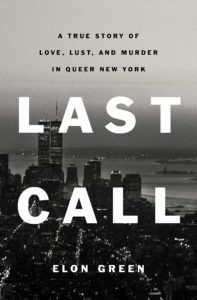
Elon Green, Last Call: A True Story of Love, Lust, and Queer New York, Celadon (March 9)
Elon Green’s Last Call is the most recent addition to a new wave of true crime exposing horrific violence committed against the LGBTQ community, the institutional indifference that allowed these crimes to continue, and the community activists who made sure these crimes got solved. Last Call follows activists and investigations as they attempt to track down a killer whose skillful dismemberment of his victims points to a medical background. Each victim had a complicated relationship with their identity, and each had been lured to their death by a charming predator based in a discrete piano bar. Elon Green paints a disturbing portrait of a decade—the 1990s—in which a community devastated by a plague simultaneously experienced a rise in hate crimes justified by the “gay panic” defense, and a scattershot police response to safety concerns. –MO

Semezdin Mehmedinović, tr. Celia Hawkesworth, My Heart, Catapult (March 9)
My Heart is an interrogation of a Bosnian past from a place of trauma and displacement, which parallels the turnstiles of love and family, themes and topics around which the book’s heart is centered. In one section, “Snowflake” (which was also excerpted in Freeman’s: Love), the narrator cares for his wife after a stroke strands them with only part of their memories together. How the couple navigates this gap is one of the most beautiful pieces of writing I have ever read. To be so loved and to have it so divinely expressed, feels both ecstatic and harrowing, like the delicacy of skim ice. I cried my head off. Two additional chapters comprise the rest of the book, both also following the cuticles of love, and how love both anchors and unmoors. There’s no other writer who conveys with such grace what can happen to the heart—physical, emotional, and in its memory. This will be one of the best books of 2021. –KA
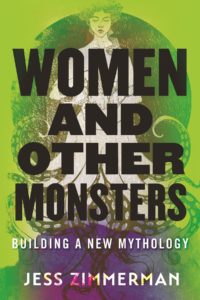
Jess Zimmerman, Women and Other Monsters: Building a New Mythology, Beacon (March 9)
Electric Lit editor-in-chief Jess Zimmerman offers up a rallying cry for women: to be hungry, feral, ambitious—in short, to be monstrous. Framing her manifesto through the stories of eleven female monsters from Greek mythology, Zimmerman demonstrates the agency and power of clawing through social constructions. Carmen Maria Machado calls it “muscular and dangerous,” and poised to become a feminist classic. –ES
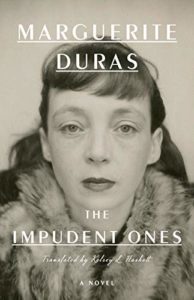
Marguerite Duras, The Impudent Ones, New Press (March 9)
In this never-before-translated work, Duras explores familiar themes—alienation, forbidden love, and the slow dissolution of a family. In this case, the family rots away not in an imperial context, but in the sleepy French suburbs, where rumors travel fast and reputations take a lifetime to build, and an instant to destroy. I’m looking forward to savoring every word of Duras’s delicious sentences and immersing myself in the delicate atmosphere of mid-century suspicion and Faulkner-esque love triangles. –MO

Michelle Nijhuis, Beloved Beasts, W. W. Norton (March 9)
Look, I know I should be reading all the climate crisis books, but my cowardly heart is generally too overwhelmed to take my medicine. That’s why I’m looking forward to reading Beloved Beasts this year, which tells the (epic! dramatic!) story of the scientists, activists, and organizations who make up the modern conservation movement. I’m hoping to take heart—and also to educate myself on the racist and colonialist practices of conservationists, which journalist Michelle Nijhuis doesn’t paint over. –ES

Robert Alter, Nabokov and the Real World: Between Appreciation and Defense, Princeton University Press
(March 16)
Vladimir Nabokov is known for his dazzling prose style and complex literary games; all that artifice makes it easy to think of his works as literature for literature’s sake. But Nabokov’s work was fiercely concerned with morality, as was he in life. This essay collection assesses the stakes and real-world relevance of Nabokov’s writing, from his lectures and short stories to his major novels. It’s a great read if you’re a Nabokov fan, or if you’ve ever wondered, “Why did this guy write Lolita?” –WC
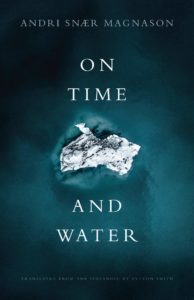
Andri Snær Magnason, tr. Lytton Smith, On Time and Water, Open Letter (March 16)
Like Iceland itself, a country of mythology and memory, this book explores the essence of time and how we need to adjust our sense of it and adjust our environmental storytelling if we are to make meaningful such terms as “climate change,” which is now moving faster than geologic time has historically allowed. Magnason writes at the human scale, however, incorporating family and love—and the historical reach of both—to craft an aperture in which we can view not just our past, but our future. Note: Magnason wrote a eulogy for Ok Glacier (Okjökull), the first glacier to be classified as dead. It’s one way to mark environmental time, as Magnason seeks to do. –KA
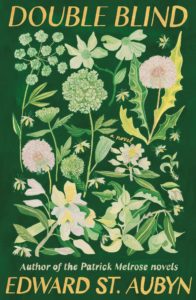
Edward St. Aubyn, Double Blind, FSG (March 16)
Arguably the greatest living English novelist never to have won the Booker Prize (not that he minds, necessarily; do you think he minds?), Edward St. Aubyn returns after a three-year hiatus with an urgent, polymathic work about the hunger for and fight to possess knowledge—for its own sake, as a sign of status, as an instrument of power. Well and rightfully known as a chillingly incisive portraitist of human monstrosity, St. Aubyn is still somehow underrated as a describer of tenderness and compassion. Philosophy, art, psychoanalysis, genetics, ecology—Double Blind has something to say about almost everything. –EF
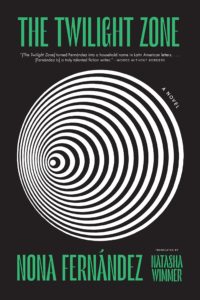
Nona Fernández, tr. Natasha Wimmer, The Twilight Zone, Graywolf Press (March 16)
Last year, Nona Fernández’s Space Invaders was longlisted for the National Book Award for Translated Literature. She’s back—and continuing to poke and probe at the dangers of leaving your government unquestioned and turning a blind eye to the crimes it commits. In The Twilight Zone, our protagonist follows a man she once saw on the cover of a magazine with the words “I Tortured People” printed under his face. As in Space Invaders, the horrors of dictatorship are filtered through the unique and perceptive lens of the child. And just like Rod Serling’s television masterpiece, this novel pulls back the curtain on the brutality of human nature. –KY

Jo Ann Beard, Festival Days, Little, Brown (March 16)
Do I need to say much more than that the author of Boys of My Youth is back with a new collection? If I must, I’ll add that the nine pieces—some from magazines, a few new essays—are described as “genre-defying nonfiction stories,” and my sincere hope is that 2021 brings with it the mental and emotional bandwidth for some sassy Twitter debates about that oh-so-contested line between truth and fiction. –ES
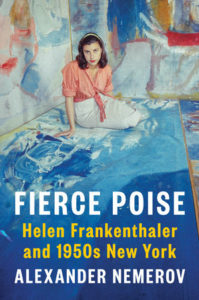
Alexander Nemerov, Fierce Poise: Helen Frankenthaler and 1950s New York, Penguin Press (March 23)
This novelistic biography that tells the story of abstract expressionist Helen Frankenthaler’s early years in postwar New York, using just 11 days of her life between 1950 to 1960—each one an artistic turning point—as a lens. Both subject and structure call my name here, and I’m looking forward to swirling around the NYC art scene with this trailblazer. –ET

Gina Nutt, Night Rooms: Essays, Two Dollar Radio
(March 23)
I may be a wimp when it comes to scary movies, but you better believe I’ll be reading Night Rooms. Gina Nutt uses horror movie tropes to weave together fragmented essays on anxiety and grief, homebuying, and shark-infused family vacations. It’s also inspired one of my favorite blurbs thus far, from Jeannie Vanasco: “I want to read it in an MRI machine just to confirm that every part of my brain indeed lit up.” –ES
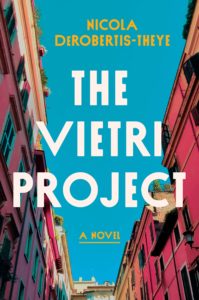
Nicola DeRobertis-Theye, The Vietri Project, Harper
(March 23)
When a novel begins in a bookstore, there’s a pretty good chance I’m going to like it. I don’t know why—something about the sensibility. In this debut, a young woman working in a Berkeley bookstore becomes fascinated by an Italian customer, signor Vietri; later, when she finds herself finding herself in Rome, she embarks on a quest to find him. Alexandra Chang described it as “cool, precise, and elegant,” which sounds like just what I need right now. –ET
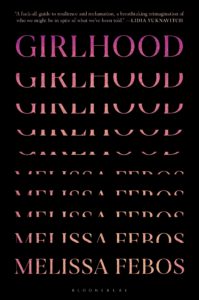
Melissa Febos, Girlhood, Bloomsbury (March 30)
Melissa Febos’s writing is always luminous, fearless, and blazing with intelligence. 2017’s Abandon Me was one of the standout collections of recent years and earned her deserved comparisons to Maggie Nelson and Leslie Jamison. Her new collection of interwoven essays—a blending of memoir, reporting, and criticism—is billed as an examination “of the narratives women are told about what it means to be a girl and the realities of growing up female in a world that prioritizes the feelings, perceptions, and power of men at girls’ expense,” and sounds every bit as essential as her last. –DS
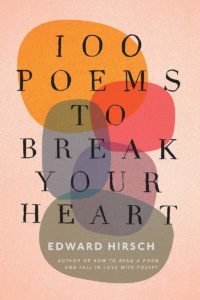
Edward Hirsch, 100 Poems to Break Your Heart, HMH (March 30)
All of us, to lesser or greater degrees, have had our hearts broken by the past year. So why the hell would you seek it out? Well, sometimes it helps to commune with the pain of others, particularly when it’s exquisitely rendered as a poem. I was a big fan of Edward Hirsch’s unexpectedly tender, erudite “how-to” manual for poetry, How to Read a Poem, and I would gladly place my heart in his hands (figuratively), at least for the time it takes to read one of these 100 poems, collected from the last 200 years. –JD
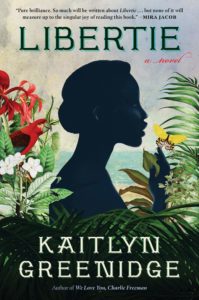
Kaitlyn Greenidge, Libertie, Algonquin (March 30)
Kaitlyn Greenidge is one of those destined-for-greatness contemporary writers and thinkers whose every published word is essential reading, whether those words come in novel, essay, or op-ed form. Her second novel, inspired by the life of one of the first Black female doctors in the United States, is about a free-born Black girl in Reconstruction-era Brooklyn trying to reconcile her physician mother’s expectations with her own lived experience and creative desires. I was bowled over by We Love You Charlie Freeman, Greenidge’s brilliant and disturbing 2017 debut, so Libertie—which Publishers Weekly has already called “[a] genius work of radical historical fiction”—is going right to the very top of my 2021 TBR pile. –DS

Gabriela Garcia, Of Women and Salt, Flatiron (March 30)
This gripping, accomplished debut follows generations of Cuban women, from María Isabel, rolling cigars as she listens to the words of Victor Hugo and men die around her, to Jeanette, struggling with addiction in Miami, and trying to find a place in the world that feels real. An interlocking portrait of women striving, loving, losing, getting lost and getting found. –ET

Hanif Abdurraqib, A Little Devil in America: Notes in Praise of Black Performance, Random House (March 30)
If you’ve been following Hanif Abdurraqib’s writing in The New Yorker, Pitchfork, The New York Times (I could go on), then his new book really needs no further embellishment. If you’ve read Go Ahead in the Rain: Notes to a Tribe Called Quest, then you already know that his writing reads like music on the page; it spits, crackles, and comes to life. The much-anticipated A Little Devil in America is a thorough and engaging look at Black performance and its role in American culture. I can say all the usual things—that this book is timely and resonant and important—but instead I will say that, more than anything, it’s a celebration. –KY



